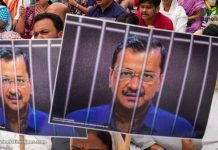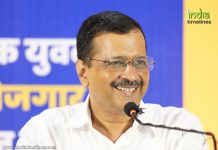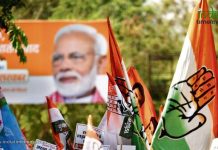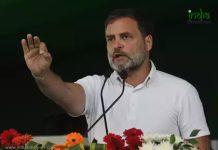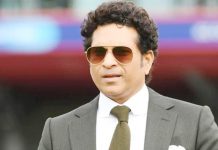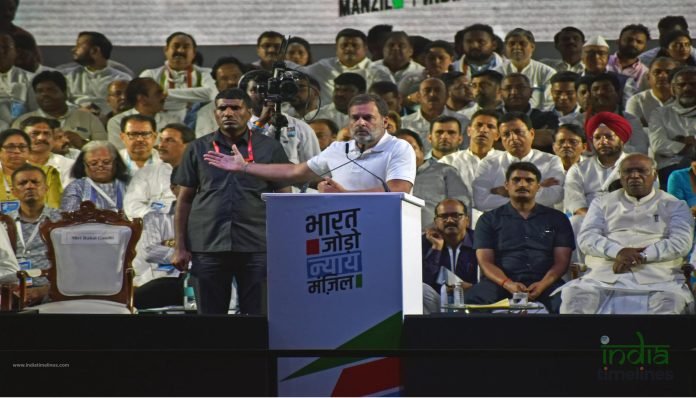
Rahul Gandhi, the prominent leader of the Indian National Congress, recently concluded his Bharat Jodo Nyay Yatra with a grand show of strength in Mumbai, marking a significant moment in Indian political discourse. The Nyay Yatra, which translates to “Connect India, Justice March,” embarked on a journey spanning various states, aiming to engage with the masses and understand their grievances while also highlighting the party’s vision for a more equitable and just society.
Objectives of the Nyay Yatra
The primary objective of Rahul Gandhi’s Bharat Jodo Nyay Yatra was to bridge the gap between different sections of Indian society and address the prevailing socio-economic disparities. Through this journey, Gandhi sought to amplify the voices of marginalized communities, emphasizing the need for inclusive development policies and social justice initiatives.
Milestones of the Nyay Yatra
The Nyay Yatra traversed through several states, covering both rural and urban areas. Along the way, Rahul Gandhi interacted with farmers, laborers, students, women, and other segments of society, listening to their concerns and articulating the Congress party’s commitment to addressing them. The journey served as a platform for dialogue, enabling Gandhi to connect with people from diverse backgrounds and understand the multifaceted challenges they face.
Significance of Mumbai as the Concluding Destination
Mumbai, the financial capital of India, held immense symbolic significance as the concluding destination of the Bharat Jodo Nyay Yatra. The city’s vibrant and diverse population provided an ideal backdrop for Gandhi to demonstrate the broad-based support for his vision of an inclusive and progressive India. Additionally, Mumbai’s cosmopolitan character facilitated extensive media coverage and amplified the message of the Nyay Yatra across the nation.
Highlights of the Show of Strength in Mumbai
The culmination of the Nyay Yatra in Mumbai witnessed a massive turnout of supporters and party workers, reflecting the enthusiasm and momentum generated by Gandhi’s grassroots campaign. Addressing the gathering, Gandhi reiterated his commitment to empowering the marginalized sections of society and promised to champion their cause on the national stage. The event featured cultural performances, speeches, and displays of solidarity, underscoring the unity and resilience of the Congress party.
Analysis of the Impact of the Nyay Yatra
Rahul Gandhi’s Bharat Jodo Nyay Yatra garnered widespread attention and generated significant momentum for the Congress party ahead of upcoming elections. The journey succeeded in galvanizing support among various segments of the population and positioning Gandhi as a champion of social justice and inclusive development. However, the Nyay Yatra also faced criticism from political opponents, who questioned its efficacy and accused Gandhi of engaging in populist rhetoric.
Reception and Criticisms Faced by Rahul Gandhi
While the Nyay Yatra received praise for its focus on grassroots engagement and inclusivity, it also encountered skepticism from certain quarters regarding its political implications. Critics raised concerns about the timing of the campaign and its potential to polarize voters along ideological lines. Additionally, some commentators questioned the feasibility of the policy proposals advocated by Gandhi during the Yatra, calling for more concrete action plans.
Future Implications of the Nyay Yatra
The conclusion of Rahul Gandhi’s Bharat Jodo Nyay Yatra marks the beginning of a new chapter in Indian politics, characterized by heightened awareness of social justice issues and a renewed emphasis on grassroots mobilization. As the Congress party prepares for upcoming electoral battles, the insights gained from the Nyay Yatra are likely to inform its policy agenda and campaign strategy, shaping the contours of the political discourse in the months to come.
Conclusion
Rahul Gandhi’s Bharat Jodo Nyay Yatra culminated in a powerful show of strength in Mumbai, underscoring the Congress party’s commitment to inclusive development and social justice. The journey served as a catalyst for dialogue and engagement, amplifying the voices of marginalized communities and highlighting the need for systemic reforms. While the Nyay Yatra faced criticisms and challenges, its impact on Indian politics is likely to endure, shaping the course of future debates and policy decisions.
FAQs
1. What was the purpose of Rahul Gandhi’s Bharat Jodo Nyay Yatra?
The Nyay Yatra aimed to bridge socio-economic disparities and amplify the voices of marginalized communities through grassroots engagement.
2. How did the Nyay Yatra conclude in Mumbai?
The conclusion in Mumbai featured a massive show of strength with speeches, cultural performances, and displays of solidarity, highlighting support for Rahul Gandhi’s vision.
3. What were the key highlights of the show of strength in Mumbai?
The event showcased broad-based support for social justice initiatives and reinforced Gandhi’s commitment to empowering marginalized sections of society.
4. What criticisms did Rahul Gandhi face during the Nyay Yatra?
Critics raised concerns about the timing and political implications of the campaign, as well as the feasibility of its policy proposals.
5. What are the potential future effects of the Nyay Yatra?
Insights from the Nyay Yatra are likely to shape the Congress party’s policy agenda and campaign strategy, influencing the political discourse in the coming months.

